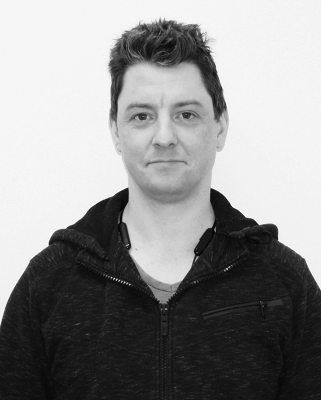Dr Travis Monk
Biography 
I was born and raised in Alaska. The long winters gave me ample opportunity to pick up various hobbies as a kid, from piano to ice hockey. My dabbling personality stuck with me into my adult life, and in particular in my career as a scientist. Academia has been very kind to me, allowing me to travel the world to pursue my research interests and contribute to the literature. I've lived in six countries and extensively travelled a dozen more.
I became interested in science because I find it fascinating how one can make profound statements about nature with nothing more than a pencil and paper. I find aesthetic beauty in compact statements, and intellectual pleasure in stripping problem complexity away until a tractable answer falls out. I like frictionless pendulums and spherical cows. While many scientists ask 'how can I solve some given problem?', I prefer to ask 'what class of problems can I solve easily?'
Research Interests
My principal interest is to develop a mathematical theory for neural computation.
Modern nervous systems are staggeringly complex. Single neurones are very difficult to model and analyse, let alone networks of them. But they must have evolved from simpler antecedents, in simpler ancestors with simpler behaviours.
The core functional features of spiking neurons are remarkably conserved throughout the animal kingdom, from jellyfish to worms to flies to humans. Spiking neurons generally fire brief action potentials with amplitudes of tens of millivolts, and with durations of around a microsecond. What selection pressures might have forced ancient animals to evolve cells that fire spikes to each other? Why do neurones address that problem so well? If neurones are the answer, then what was the question?
Animals started eating each other around 550 MYa. The advent of predation must have forced animals to make precisely-timed decisions, given weak signals from other animals in proximity. Modern examples of such precisely-timed decisions in predator-prey interactions include striking, fleeing, burrowing, stabbing, etc. The success of animals making those decisions depends very strongly on their timing; deciding to flee a millisecond too early or too late can mean death. Animals might have evolved nervous systems to satisfy selection pressures introduced by predation, just as they evolved teeth, claws, spines, shells, drills, and skeletons during that era.
My principal research interest is developing a mathematical theory for how networks of cells that fire spikes to each other can detect dangerous world states and react to them with millisecond precision. At the moment, I address that interest by studying event-based cameras.
Event-based cameras represent a new paradigm in film. Instead of taking repeated pictures and playing them frame-by-frame, event cameras comprise a bed of pixels that fire events when the luminance at their location changes. They detect change on the microsecond timescale, and perhaps new technological advances can push that temporal resolution to nanoseconds. They reduce the bit rate of a visual scene by orders of magnitude with respect to conventional frame-based cameras. They require less power to operate. They are biologically-inspired, as they strongly resemble a retina of photoreceptors that fire spikes given changes in the world.
As a postdoctoral researcher at MARCS, my goal is to develop low-power, online algorithms that can detect certain features of interest from the world from event-based cameras. For example, if we point an event camera towards the night sky, we might want to detect satellites or other objects in orbit as they streak across the field of vision. Or if we strap an event camera on a drone, we might want to use the camera to provide feedback to the drone such that it can autonomously navigate an unexplored environment. By developing online algorithms that can detect world states from event-based cameras, we might also understand nervous system function.
Qualifications
- BSc, Physics, Truman State University
- MSc, Theoretical Neuroscience, University of Plymouth
- PhD, Zoology, University of Otago
Publications
For a listing of my publications, please see my Google Scholar page.
Contact Travis
| travis.monk@westernsydney.edu.au | |
| Location | Western Sydney University Penrith South Campus |
| Room | Building BA.2.02 |



